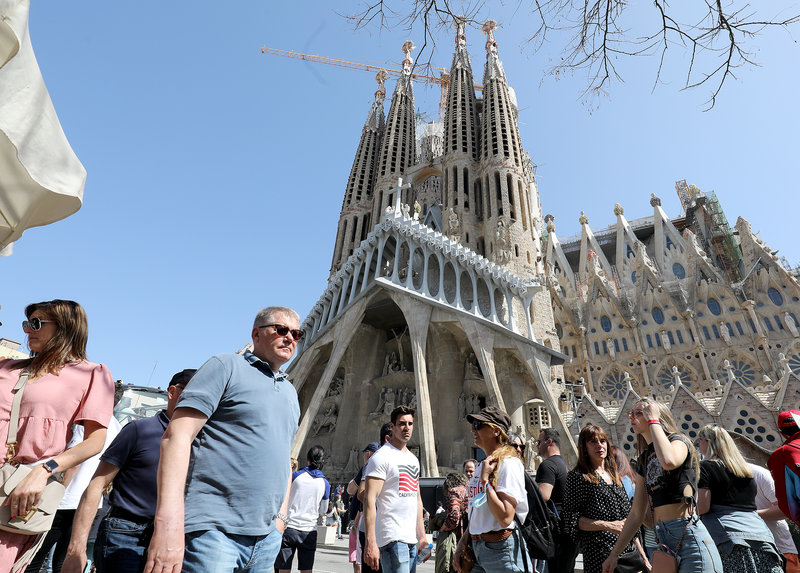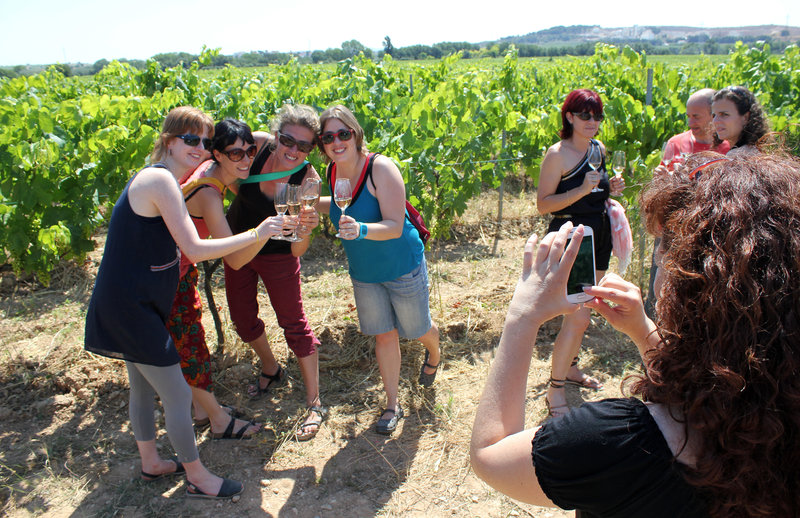The moment of change
After a two-year hiatus because of the global health crisis and the resulting restrictions on mobility, the Catalan tourism sector is back to 2019 occupancy figures
After two years of shutdown due to Covid-19, all the indicators suggest that this year the occupancy figures – which do not represent profit – could rise to match those recorded in Catalonia in 2019, that is, 39.3 million tourists with a reported expenditure of over 25 million euros. The sector has survived the pandemic by investing time and effort into changes to its structure and mindset, with a new tourism model that can begin to move forward with the idea of promoting responsible tourism, more rooted in local regions, and with culture, traditions and gastronomy as its central axes.
The 2019 summer campaign served to detect an increase in the number of tourists compared to the previous year and an increase of 4.5% in spending compared to 2018, 4% of which was by foreign tourists. This figure is important considering that, at that time, 49.3% of all tourists in Catalonia were foreigners, and that this segment accounted for 84.7% of total expenditure for the year. These figures plummeted just a year later due to the pandemic restrictions applied by the Catalan and Spanish governments, and tourists’ countries of origin. From 39 million tourists, the number fell to 15.2 million, 61% of whom were Catalans, and who generated a total expenditure of just 5.7 million euros.
This context led to a change of tourism model, since the sector was forced to close down and a large number of staff became unemployed. Travel agencies and wholesalers have experienced an unprecedented crisis in the past two years, and rural and small tourism aimed at the end customer have become the sector’s mainstay, leaving a mark on the bigger brands. In 2020, the major tourism chains put all their infrastructure on standby and took the opportunity to implement business policies related to sustainable and environmentally-friendly tourism, a pending issue for the sector and one which would guarantee a better starting point when tourists returned.
Recovery
The figures recorded during the Easter holidays and the air and road movement of recent weeks, together with bookings forecasts, suggest a clear recovery in occupancy figures this year, in line with those registered in 2019, a trend confirmed by the Catalan government’s Director General of Tourism, Marta Domènech. The results of the sector prior to the pandemic demonstrated its ability to continue leading the GDP for services in Catalonia, and now the resilience of these companies is being tested in one of the sector’s most challenging moments.
All forecasts suggest that this year could bring the boost the sector needs to start its recovery and, despite the fact that these two years have forced the Catalan economy to diversify to escape its dependence on tourism and problems arising from fluctuations in it, Domènech believes that the advantages the sector offers the country as a whole should be highlighted. According to her, socially, Catalonia needs to become aware of the value of a sector that, after two years of inactivity, still remains one of the key sectors of the economy, representing 12.5% of Catalan GDP. She also notes that the only explanation for the current situation is the sector’s adaptability and resilience, which allows it to offer tourist services as normal this summer season. In addition, the Director General of Tourism emphasises the fact that tourism provides the native population with infrastructure and investments and, therefore, more advanced and competitive living models. Domènech believes that Catalonia must break with the myth that sees tourism as an inconvenience and has undertaken to use her government position to resolve the difficulties posed by the mass arrival of visitors at certain times of the year. One of the main measures in this regard is to start a process of deseasonalisation, taking advantage of the appealing year round temperatures.
Food and wine
At a time when the Catalan government is facing changes that require greater regulation of the sector, food and wine may prove to be the backbone of a model that will prioritise culture and tradition beyond the sun and beach model that has marked Catalonia as a destination since the seventies. Domènech notes the importance of the sector as a tourist attraction, as it helps to give oxygen to depressed and vulnerable sectors such as farming, fishing and livestock, and awards greater value to the landscape, while also addressing the need to offer a product linked to the values of sustainability and the green economy demanded by the current climate emergency.
Feature out & about






